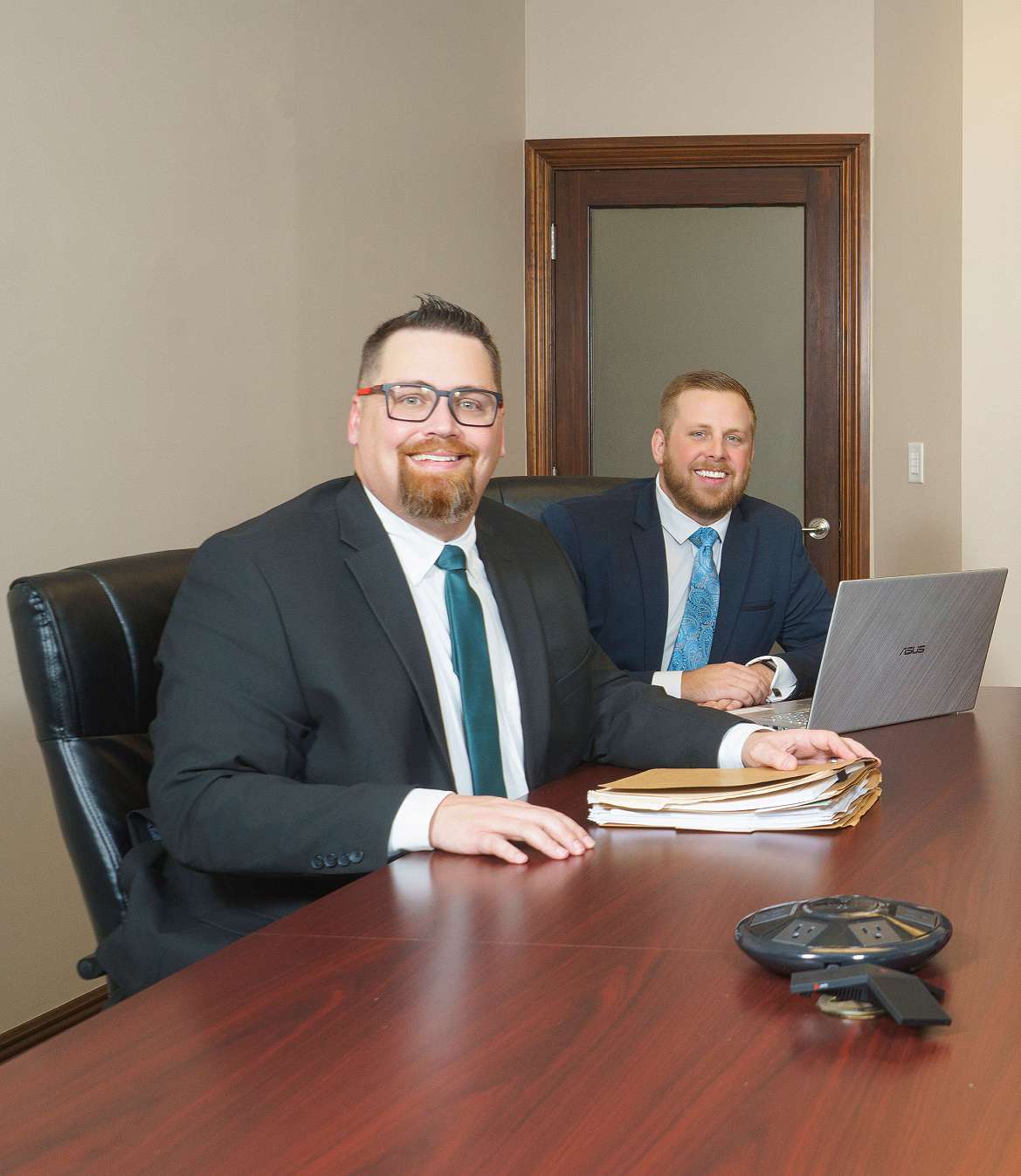"*" indicates required fields
Florida Workplace Discrimination Lawyer
Workplace discrimination transforms your job into a source of daily stress and frustration. Florida and federal laws protect you when an employer treats you unfairly because of your race, age, gender, religion, or another protected characteristic. You do not have to tolerate it.
A Florida workplace discrimination lawyer at Brenton Legal can explain your legal options, build your case, and take action to pursue the maximum compensation available.
Florida employers must follow anti-discrimination laws. When they fail, legal action holds them accountable. This legal process moves quickly and involves strict deadlines. Securing legal representation early strengthens your position to recover lost wages, benefits, and other damages.
Brenton Legal offers free consultations so you can learn your rights without any upfront cost. Understanding how to win a workplace discrimination case starts with knowing your legal protections and building a strong foundation early.
Contact us now to get started.

Understanding Workplace Discrimination in Florida
Workplace discrimination happens when an employer treats someone unfairly based on protected personal characteristics. These protections come from both federal and state laws. Knowing where these protections come from and how they apply can help you decide what steps to take to protect yourself and your rights.
Federal Anti-Discrimination Laws
Federal law gives employees protection through several key laws:
- Title VII of the Civil Rights Act of 1964: Prohibits discrimination based on race, color, religion, sex, and national origin.
- The Age Discrimination in Employment Act (ADEA): Protects workers aged 40 and older.
- The Americans with Disabilities Act (ADA): Prohibits discrimination against qualified individuals with disabilities.
- The Equal Pay Act of 1963: Requires equal pay for equal work regardless of gender.
These laws apply to most employers with 15 or more employees, and they cover actions such as hiring, firing, pay, promotions, and training.
Florida Civil Rights Act (FCRA)
Florida also has its own anti-discrimination law called the Florida Civil Rights Act. It mirrors many of the protections found in federal laws but expands coverage in some areas. The FCRA applies to employers with 15 or more employees and prohibits unfair treatment based on race, color, religion, sex, pregnancy, national origin, age, disability, or marital status.
Protected Classes in Florida
In Florida, protected classes include:
- Race and color
- Religion
- Sex and pregnancy
- National origin
- Age (40 and up)
- Disability
- Marital status
Employers may not treat you differently in hiring, promotions, pay, or job duties because of any of these traits.
Types of Discriminatory Actions
Discrimination can show up in different ways. Some common examples include:
- Refusing to hire someone based on their race or age
- Paying one gender less for the same work
- Denying promotions to employees with disabilities
- Firing someone after they complain about discrimination
Subtle actions, like isolating a person from projects or removing responsibilities, can also count if they relate to a protected trait.
What Are the Most Common Types of Workplace Discrimination?
Discrimination takes many forms. Some are obvious. Others are harder to spot right away. But each one can impact your job, income, and peace of mind.
Age Discrimination
Workers over 40 often face unfair treatment. An employer might assume older workers can’t handle new technology or prefer to hire younger employees. Age discrimination can show up in hiring, layoffs, promotions, or comments that suggest you should retire.
Race and Color Discrimination
Discrimination based on race or skin color can happen in different ways. Employers may deny opportunities, treat workers unfairly, or allow racial jokes or slurs in the workplace. Race discrimination can also affect job assignments, evaluations, and promotions.
Sex and Gender Discrimination
Treating employees differently based on gender or sex includes unequal pay, biased promotions, and sexual harassment. Gender discrimination can also affect non-binary or transgender workers.
Religious Discrimination
Employees have the right to practice their faith without punishment at work. Employers must make reasonable accommodations for religious practices, such as prayer times or dress codes, unless doing so creates a serious burden for the business.
Disability Discrimination
The law protects workers with physical or mental impairments. Employers must provide reasonable accommodations unless they can prove the changes would cause undue hardship. Refusing to hire someone with a disability or firing them because of their condition can violate the law. If you’ve experienced this, it’s important to understand what are my rights under both federal and Florida law.
National Origin Discrimination
This type of discrimination includes unfair treatment based on birthplace, ethnicity, or language. It may also include rules that unfairly target people with foreign accents or require English-only policies without good reason.

Recognizing Signs of Workplace Discrimination
Sometimes, discrimination is obvious. Other times, it builds up over time. Learning how to spot the signs helps protect your rights and strengthens your case.
Direct vs. Indirect Discrimination
Direct discrimination happens when an employer clearly treats someone differently because of a protected trait. For example, saying “We don’t hire women for this job” is direct and illegal. Indirect discrimination might involve a neutral policy that harms one group more than another, such as requiring employees to work Saturdays with no exceptions, which could affect religious practices.
Pattern of Discriminatory Behavior
One unfair comment or action might not be enough for a case. But a pattern of behavior, like repeated exclusion, biased evaluations, or refusal to promote, can show that discrimination is at play.
Documenting Incidents
Keep a written record of what happened, when it happened, who was involved, and what was said or done. Save emails or other documents that show unfair treatment. This record can be helpful when building your case.
Witness Testimony
Coworkers who saw or heard the discrimination may support your story. Their testimony can be powerful evidence in showing what really happened.
How Do I File a Workplace Discrimination Claim in Florida?
If you’ve experienced discrimination, you have the right to file a complaint. This process usually starts with a government agency. Acting quickly helps you meet all the deadlines and preserve your legal rights. What are the dangers of waiting too long? Delays can weaken your case, limit available evidence, and reduce your chances of a successful outcome.
EEOC Filing Requirements
The Equal Employment Opportunity Commission (EEOC) handles most federal discrimination complaints. You must file a complaint, or “charge of discrimination,” with the EEOC before suing under federal law. The EEOC investigates your claim and may offer mediation or issue a notice giving you the right to sue.
Florida Commission on Human Relations (FCHR) Process
In Florida, you can also file a complaint with the Florida Commission on Human Relations (FCHR). The FCHR investigates violations of the Florida Civil Rights Act. You can file with either the EEOC or FCHR, and both agencies often share information if your case falls under both laws.
Time Limits and Deadlines
The default federal deadline for an EEOC complaint is 180 days, but this extends to 300 days in Florida because the Florida Commission on Human Relations (FCHR) also investigates these claim.
Missing these deadlines may prevent you from taking legal action.
Required Documentation
Gather any relevant documents, such as performance reviews, emails, disciplinary notices, or medical records if they relate to your claim. The more organized you are, the easier it is to prove what happened.

Legal Remedies and Compensation
The law allows victims of discrimination to recover certain types of damages. Your case may involve different types of losses depending on what happened and how it affected your job or income.
Back Pay and Front Pay
Back pay covers the wages and benefits you lost because of the discrimination. Front pay may apply if returning to your job isn’t an option and helps cover future income you would’ve earned.
Compensatory Damages
These damages address personal harm like emotional distress, inconvenience, or harm to your reputation.
Punitive Damages
If the employer acted with clear intent or reckless disregard, a court might award punitive damages to punish that behavior and discourage others from doing the same.
Reinstatement and Promotion
Sometimes, a court may order the employer to rehire you or give you the job or promotion you were unfairly denied.
Attorney’s Fees
If your case is successful, the employer may be required to pay your legal fees.
What Should I Do If I’m Facing Retaliation?
Retaliation can happen when an employer punishes you for reporting discrimination or participating in an investigation. This kind of behavior is illegal and may give rise to its own claim. If you’re asking, can I still sue?—the answer may be yes, even if the original issue was resolved or occurred some time ago. A lawyer can evaluate whether your retaliation claim stands on its own.
Understanding Retaliation Laws
Federal and Florida laws ban retaliation for engaging in protected activities, like filing a complaint, testifying in another case, or reporting misconduct internally.
Protected Activities
You have the right to speak up about discrimination, request reasonable accommodations, or help others with their claims without being punished.
Proving Retaliation Claims
To prove retaliation, you’ll need to show three things: you engaged in a protected activity, the employer took action against you, and the two events are connected. Timing and evidence can make a big difference.
Additional Legal Protections
Florida law adds another layer of protection, giving workers more avenues to fight back if they’re punished for doing the right thing.

How Our Attorneys Can Help You
At Brenton Legal, we work with employees who want justice after being mistreated at work. You don’t have to go through this alone. Our team helps build a strong case while protecting your rights every step of the way.
Case Evaluation and Strategy Development
We begin with a free case review to learn about your situation and decide how best to move forward. Every case is different, and we tailor our strategy to your goals.
Investigation and Evidence Gathering
Our legal team helps collect records, interview witnesses, and build the evidence needed to support your claim.
Negotiation with Employers and Insurance Companies
Employers and their insurance companies often try to downplay discrimination claims. We know how to hold them accountable and push for a fair resolution.
EEOC and FCHR Representation
We handle all aspects of your complaint, from filing the charge to working with investigators. You don’t have to deal with the agencies on your own.
Litigation and Trial Advocacy
If your case goes to court, we’re prepared to fight for you. We aim to present a strong, clear argument to the judge or jury.
Settlement Negotiations
Many discrimination cases settle before trial. We work to secure the maximum compensation available based on your losses and the facts of your case.
Why Choose Our Florida Workplace Discrimination Attorneys
Choosing the right law firm can make a big difference. Brenton Legal understands Florida employment law and puts our clients first.
Experience in Florida Employment Law
We’ve handled many employment cases throughout Florida and know how state and federal laws work together.
Track Record of Successful Cases
We’ve helped clients recover lost income, hold employers accountable, and get justice after discrimination.
Personalized Attention and Communication
You’ll talk directly with your lawyer and get updates about your case. We believe in transparency and honest answers, and we’ll guide you on how to protect yourself from further mistreatment or retaliation while your claim is ongoing.
Contingency Fee Arrangements
You don’t pay upfront. We only get paid if we recover compensation for you through settlement or verdict.
Local Knowledge of Florida Courts
We understand how local judges, courts, and agencies work, which helps us better serve you.

Frequently Asked Questions About FL Workplace Discrimination
How long do I have to file a discrimination claim?
You usually have 180 to 300 days from the date of the discrimination, depending on whether you file with the EEOC or FCHR. Some deadlines may be shorter, so don’t wait.
Can I be fired for filing a discrimination complaint?
No. That would count as retaliation, which is illegal. If your employer takes action against you after filing a complaint, you may have another legal claim.
What if my employer has fewer than 15 employees?
Some laws still apply, even with fewer employees. For example, the Equal Pay Act and certain state laws may apply. We can review your case to determine your options.
Do I need to hire a lawyer for an EEOC complaint?
You don’t have to, but having a lawyer often makes a big difference. We can help you avoid mistakes, meet deadlines, and build a stronger case from the start.
How much does it cost to hire a discrimination attorney?
We work on a contingency fee, which means you don’t pay us unless we recover money for you. We also offer free case evaluations so you can learn more without any risk.
What is the main difference between filing with the EEOC and the FCHR?
The biggest differences are the deadlines and the laws they enforce. The FCHR enforces the Florida Civil Rights Act and has a 365-day filing deadline. The EEOC enforces federal laws and has a 300-day deadline in Florida. We can help you decide the best agency for your claim, and often dual-file a claim with both agencies at the same time.
What if the discrimination was subtle and I don’t have a recording or email proving it?
You do not need a “smoking gun” to have a valid case. Discrimination is often proven through circumstantial evidence, which creates an inference of illegal treatment.
This includes patterns of behavior, witness testimony from coworkers, shifting explanations from your employer, and evidence that you were treated differently from colleagues who are not in your protected class.
My boss fires people who have different political beliefs. Is that illegal discrimination?
In Florida, political affiliation is not a protected class under the FCRA or federal anti-discrimination laws.
While you have free speech rights, those rights generally do not protect you from termination by a private employer for expressing political views. The law primarily protects against discrimination based on characteristics like race, sex, religion, age, and disability.
What happens after my lawyer files a charge with the EEOC or FCHR?
After we file the charge, the agency notifies your employer. The employer then submits a written response. The agency may request more information or schedule a mediation to see if a settlement is possible.
If mediation fails, an investigator will review the evidence from both sides to determine if there is reasonable cause to believe discrimination occurred. This investigation can take many months or even more than a year to complete.
Let Our Workplace Discrimination Lawyers in FL Help
You don’t have to deal with workplace discrimination on your own. Brenton Legal offers a free case evaluation to help you understand your rights and take the next step. The sooner you act, the better your chances of holding your employer accountable.
Call (954) 639-4644 today to speak with a Florida workplace discrimination lawyer and get the help you need.
Our experienced legal team also handles clients with other types of employment cases, including:

"Brenton Legal is that law firm – bar none."
When it comes to family, everyone would agree you do not just walk into any law office. You do your research. You talk to people. You make sure you are going to receive representation that you can wholeheartedly trust, at a reasonable value, and that will place you or your family member in a better position. Brenton Legal is that law firm – bar none. I trust this firm to help guide my family and that should tell you everything you need to know if you read reviews.
"We would give more than 5 stars if we could!!!"
Travis and the team at Brenton Legal was absolutely amazing. They met and exceeded our expectations and helped navigate us through unfamiliar territory. Any time we had a question or concern, either Travis or Jackie responded in a very timely manner. We would give more than 5 stars if we could!!! Thank you so much!
"He took the time to fully understand my situation."
I recently had a complimentary consultation with Ryan, and I’m so grateful I reached out. He took the time to fully understand my situation, asked thoughtful questions, and gave me clear, honest guidance without any pressure. He helped me think through my options, what risks to consider, and even shared helpful talking points. Most importantly, he showed genuine care and empathy during a really stressful time for me. I would highly recommend Ryan to anyone looking for an attorney who is both skilled and truly supportive of their clients’ best interests.
"They were honest and open..."
I cannot say enough good things about this team. They were honest and open throughout my entire process. Clear expectations were set and they kept me up-to-date on the process of my case. Since my case closed, they have followed up just to check in. I highly recommend this firm.
"I highly recommend Alison"
I am incredibly grateful to have worked with Alison Churly at Brenton Legal during a challenging time. Alison took the time to truly understand my situation with genuine empathy and compassion while helping me navigate a difficult situation with confidence and peace of mind. Alison went above and beyond to ensure I felt supported, and her dedication made a significant difference in my experience. Her thoughtful guidance and reassurances were invaluable every step of the way. If you are seeking an attorney that will advocate for you as a trusted ally, I highly recommend Alison at Brenton Legal as the premier choice for representation in employment disputes.
